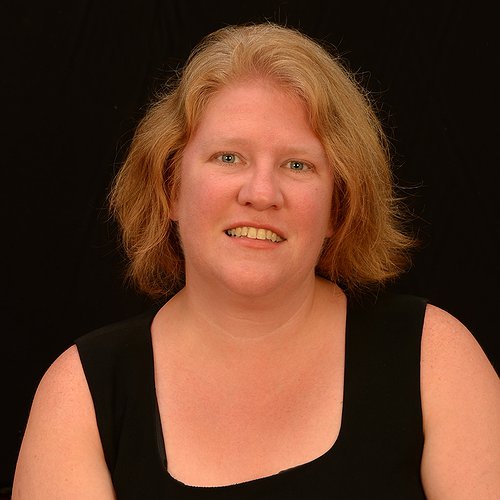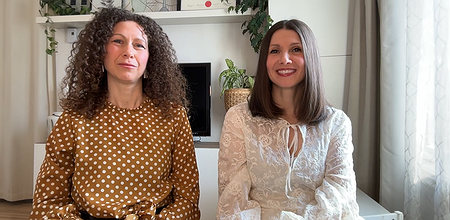- Understand the development of healthy attachment between parent and child.
- Learn about the connection between insecure attachment and the development of mental health symptoms.
- Identify how parents can grow a child’s self esteem and self concept in healthy ways.
- Recognize dysfunctional family systems and strengthen relationships using secure attachment.
Teach Attachment Parenting
Dr. Christina Reese, Clinical Professional Counselor
Deploy attachment-based interventions to foster felt safety and support emotional regulation within the parent-child relationship
Excerpt:
- 3h of continuing education
- 21 lessons that last from 5 to 15 minutes each
- 1 certificate of achievement
- 1 PowerPoint
- 1 bibliography
- 1 course evaluation
- 7-day money back guarantee
- Unlimited access
- 91% of participants who completed the satisfaction survey declare they would recommend this course to a colleague
Overview
In a culture that idealizes autonomy and self-sufficiency, the normative developmental dependence of children is often misunderstood—and, at times, pathologized. This societal narrative can create a profound disconnect between parents and their children, especially when independence is promoted before the child has developed foundational capacities for emotional self-regulation. When this premature push toward autonomy occurs, it can disrupt the critical processes of attachment, self-esteem formation, and identity development.
This raises key clinical questions:
- What are the psychological consequences of encouraging independence before a child is developmentally ready?
- How does disrupted attachment impact the emergence of self-regulation and self-concept?
- What internal mechanisms develop when a child is left to navigate emotional experiences without the scaffolding of a secure attachment?
In this workshop, Dr. Christina Reese, seasoned clinician and author with over 20 years of experience, will guide participants through the nuanced dynamics of attachment disruptions and their long-term implications.
Through a blend of developmental theory, clinical insights, and practical tools, you will:
- Learn how to support parents in building and maintaining secure attachment with their children.
- Explore strategies to enhance felt safety and emotional security within the parent-child relationship.
- Gain techniques for helping caregivers understand their vital role in co-regulating their child’s emotional world.
This session will equip you with evidence-based approaches to implementing attachment-informed interventions that foster resilience, emotional regulation, and relational repair.
Accreditation
Collège des médecins du Québec
For physicians who practice psychotherapy, training recognized by the Ordre des psychologues du Québec is automatically considered as activities adopted by the Collège des médecins, in accordance with Article 3 of the Regulation.
For physicians who do not practice psychotherapy, the College evaluates each recognition request based on the following criteria:
- the relevance of the activity to the practice of the profession
- the skills and experience of the trainer
- the quality of the content and its adequacy with the physician's practice
- the pedagogical framework of the activity
- the quality of the documentation provided
- compliance with the training objectives set out in the regulation
- the presence of a certificate of participation or an evaluation
About the expert

Dr. Christina Reese is a Licensed Clinical Professional Counselor with over 20 years of specialized experience in attachment-based trauma treatment. Licensed in Maryland, Maine, and Pennsylvania, she serves as a clinical supervisor helping therapists develop expertise in complex trauma and attachment disorders.
Dr. Reese earned her Ph.D. in Counselor Education from George Washington University and her Master's degree in Community Counseling from McDaniel College. Her doctoral research, "A Qualitative Study of Gang Desistance in Former Gang Members," explores the intersection of trauma, attachment, and behavioral change.
As a TBRI (Trust-Based Relational Intervention) Practitioner, Dr. Reese integrates cutting-edge attachment science with trauma-informed clinical practice. She has authored six influential books including:
- "Attachment"
- "The Attachment Connection"
- "Trauma and Attachment"
- "The Socially Confident Teen"
- "Leveling Up"
- "Puzzle Pieces"
Dr. Reese's clinical work focuses on providing practical, implementable strategies for repairing attachment disruptions, supporting emotion regulation, and treating attachment-related mental health disorders in children and families. Her approach combines foundational attachment theory (Bowlby, Ainsworth, Harlow) with contemporary neuroscience and evidence-based interventions that clinicians can immediately apply in practice.
Learning objectives
Learning material
A theoretical course illustrated with clinical examples. This course is composed of videos of 5 to 15 minutes each. The PowerPoint of the course to download.
Syllabus
- PowerPoint
- 1. Introduction
-
Development of Attachment Between Parents and Children
- 2. Attunement-Meeting Needs
- 3. Trust Development
- 4. Safe Vulnerability
- 5. Healthy Attachment
-
Attachment Science and Research
- 6. Internal Working Models
- 7. The Essential Need
-
Attachment Styles and Implications of Insecure Attachment
- 8. Secure Attachment Style
- 9. Anxious Attachment Style
- 10. Avoidant Attachment Style
- 11. Disorganized Attachment Style
-
Secure Attachment
- 12. Routines and Structure
- 13. Technology Free Zones
- 14. Parent Emotion Regulation
-
Healing Trauma
- 15. Childhood Trauma
- 16. What to Do with a Button Pushing Child
- 17. Other Trauma
-
Growing Emotion Regulation
- 18. Emotion Regulation
- 19. Handling Tantrums
- 20. Mental Health Disorders
- 21. Conclusion
- Bibliography
CE Credits
Download a certificate of successful completion.
Audience
This course is intended for mental health professionals.
Your comments
"Dr. Reese is a great teacher and this is one of the best course I have taken so far on-line. I hope to attend more of her courses." (automatically translated)
A psychotherapist (Canada)
"The speaker was knowledgeable and engaging. I enjoyed the very practical nature of her talk and look forward to using some of these elements in my own practice."
A psychologist (Canada)
Registration
Ask a question
Do you have a question? Then email us at contact@asadis.net
Frequently asked questions
-
Is there an evaluation at the end of the course?
To validate the achievement of the learning objectives, a final evaluation in the form of true/false questions is required. It must be completed in order to obtain the certificate of completion.
In addition, an optional self-assessment is offered at the beginning and end of the course, allowing you to measure your progress on the targeted skills.
These evaluations are not graded and are intended primarily to support your professional reflection.
-
I have a disability. Can I receive specific support?
Yes! This training is offered as a pre-recorded video format, without subtitles. If you have a disability, we can provide an adapted alternative (technical assistance for viewing or individual supervision). For any request, please contact our disability coordinator at the following address: contact@asadis.net
-
How long do I have access to the course?
After your registration, the course is accessible anytime and from anywhere with unlimited access.
-
When does the course start?
That is entirely up to you! When you buy a course, you'll receive an access link that you can activate when you want.
-
Is there a student rate?
Yes there is! To learn more, email us at contact@asadis.net.
You may also be interested in:
Legal notice
The courses offered by ASADIS are accredited by different professional organisations. In addition, ASADIS is approved by the Canadian Psychological Association to offer continuing education for psychologists. ASADIS maintains responsibility for the program.
The CPA’s approval of an individual, group, or organization as a CE Sponsor or Provider is restricted to the activities described in the approved application or annual report form. The CPA’s approval does not extend to any other CE activity the Sponsor or Provider might offer. In granting its approval, the CPA assumes no legal or financial obligations to Sponsors, Providers, or to those individuals who might participate in a Sponsor or Provider’s CE activities or programs. Further, responsibility for the content, provision, and delivery of any CE activity approved by the CPA remains that of the CE Sponsor or Provider. The CPA disclaims all legal liability associated with the content, provision, and delivery of the approved CE activity.




